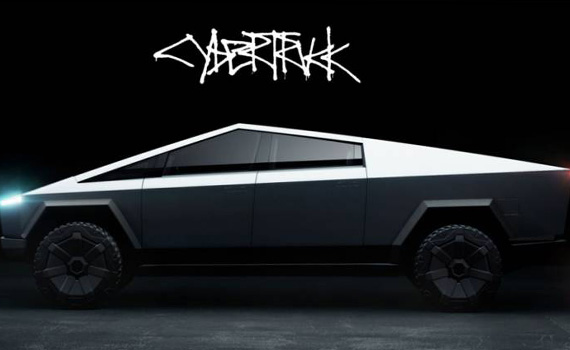Pick-up TESLA CYBERTRUCK, a little distinctive brand?
For its first pick-up, TESLA deposits two new brands and does so only for apparently unusual purposes. In fact, in early November Elon Musk tweeted that TESLA would reveal his latest electric vehicle on November 21st and that it would be the first pickup made by the US manufacturer. The name for the car had to be consistent with its innovative features, and the word CYBERTRUCK was specifically chosen for this purpose.
CYBERTRUCK probably does not provide, at first glance, the sensation of a new word in the reference sector, indeed, it would almost be considered as pertaining to a descriptive mark, but the purpose of the TESLA marketing experts was to stimulate in the consumer a whole of considerations that did not stop at the mere superficial perception of the brand.
Considering the average age of the TESLA user, CYBERTRUCK was chosen because CYBER was the most popular term in the 90s to describe the maximum of the technology of the times.
The term CYBER must have been liked so much by TESLA that, together with CYBERTRUCK, also deposited the name CYBRTRK with a graphic design very close to the one widely adopted, always in the 90s, to identify a series of well-known video games.
PICK-UP TESLA, NEW BRANDS AND INTUITIVE INTELLIGENCE
That said, the reasons that led to the choice of the name CYBERTRUCK, for the first Tesla pick-up, compared to many other apparently more distinctive words, open a window on the studies that today's companies pour into marketing activities, before choosing, launch or even re-styling the brands.
The fact is that the strong and rapid change that involves our society imposes an evolutionary approach even in that phase in which a brand takes shape. It is no longer enough to limit oneself to the mere evaluation of the "beautiful graphically", nor is it sufficient to remain with its preliminary communicational aspect.
Indeed, today the structural examination of the trademark presides over a more specific and professional evaluation of its gradient of distinctiveness, imposes to evaluate all relevant situations of the case and to reward what authoritative doctrine identifies as "intuitive intelligence", which represents an innovative evaluation criterion to determine the distinctive effectiveness of a brand.
In other words, it is necessary to search for the message that the company wants to convey to its customer target, which then becomes the associative link with other memories, motivational and sentimental aspects suitable for influencing consumer choice.
Clearly, these are assessments that cannot impose a long and thorough search of the message, in fact, the perceptive phase brand / consumer always ends in a short time, however, it is increasingly evident that when a product is chosen by the interested subject, he prefers it to others following criteria that are supplanting the generic ones, unfortunately, still widely used in trademark disputes.
In essence, we are moving towards a contextualisation of the brand that takes into consideration the consumer's competence, his experience and his motivations.
The brands that will work, will therefore be those able to combine all these features in a winning way, equally, it is desirable that the Industrial Property does not lose contact with real life, closing itself in an obsolete enclosure of legal fictions.

